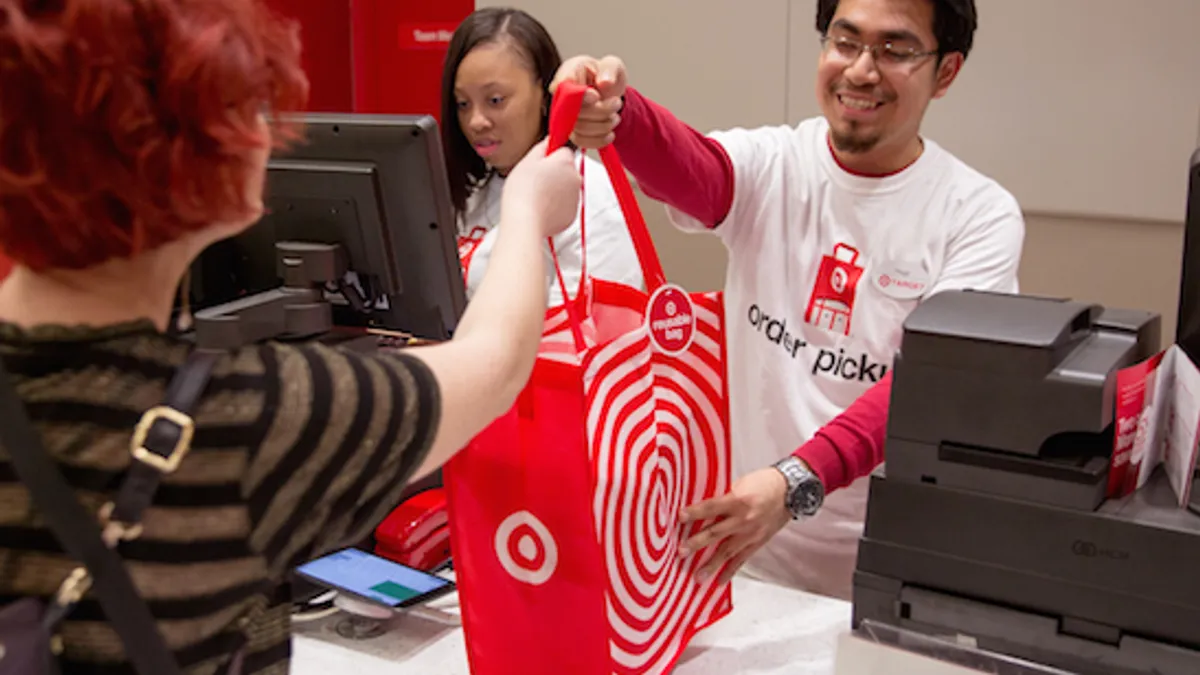Dive Brief:
-
While retailers are prioritizing omnichannel initiatives in their earnings reports and hiring executives to lead such efforts, they’ve been slower to build out rank-and-file teams to execute their omnichannel strategies, according to brand intelligence firm L2’s Omnichannel Retail 2016 report.
-
Just 6% of retailers rate as “leaders” in omnichannel according to the L2 report, emailed to Retail Dive, which looks at 89 U.S. and seven U.K. retailers with physical and digital sales channels, and features case studies on brands including Argos, Burberry, H&M, Kohl's, Macy's, Montblanc, and Wal-Mart.
-
Although 18% of retailers effectively use their digital sites to drive consumers into stores and 13% focus on e-commerce initiatives, 63% of brands fall into L2’s “laggard” category.
Dive Insight:
Brick-and-mortar retailers have a clear advantage when it comes to “touch and feel” opportunities — opportunities that customers value, according to research. But omnichannel services are also a must as e-commerce rises, L2 notes.
Omnichannel services like buy-online, return-in-store (70% adoption among those studied), store locator links in homepage headers (72% adoption) and store travel directions offered natively on e-commerce sites (79% adoption) are widely embraced, according to L2’s report. But those examples, along with free standard shipping and premium two- and next-day shipping, represent the "bare minimum for omnichannel retail,” the firm said.
"Since its inception, digital has accelerated opportunities for always-on interaction and sales channels, but it's taken a while for the retail industry (via infrastructure and technology) and consumers (via behavior and devices) to realize omnichannel’s potential," Evan Neufeld, vice president of intelligence for L2 and an author of the report, said in a statement. "Although consumer behavior is catching up, for merchants, successful omnichannel is still the exception, not the rule.”
That's seen in a myriad of measures detailed in the report, starting with how retailers are assigning the task of developing and marketing those services. According to L2’s analysis of LinkedIn data, the number of omnichannel professionals are weighted toward the top of the executive ladder, without the pipeline of mid-level managers and front line employees to execute strategies.
Retailers are clearly working on the issue, though with mixed results. More than three quarters of retailers improved one or both of their in-store and e-commerce incentives year-over-year, L2 found: 67% of retailers enhanced digital incentives to drive consumers in-store, and 44% of retailers boosted their e-commerce incentives, leaving 19% to decline in both, according to the report.
And while retailers are investing in omnichannel fulfillment options, they’re not always doing a good job of letting customers know about them, L2 researchers found. For one thing, retailers shouldn’t shirk email, which L2 characterizes as “an unparalleled tool to educate consumers about omnichannel.” According to ROI research on digital channels, the median return of email is 122%, more than four times higher than other formats such as social media or paid search, L2 said.
In a potentially expensive misfire, 89% of retailers studied used the phrase ‘free shipping’ in communications with customers, but just 7% referenced in-store pickup, with 47% promoting click-and-collect on their websites.
Adding to the challenge: Omnichannel services, and expectations for services, continue to evolve. “As more retailers begin to stress the importance of e-commerce, last-mile efforts — like packaging and unboxing — are seeing new attention,” according to the report. “Among premium shoppers, 51% indicated that custom packaging makes the product feel more valuable, and 44% said it incentivizes a repeat purchase.”
"New channels for shopping and engagement are irreversibly changing the path to purchase and giving the consumer the ability to convert at any moment," Mike Froggatt, director of intelligence at L2 and another author of the report, said in a statement. "Omnichannel retail is about meeting them when, and where, they choose."
















